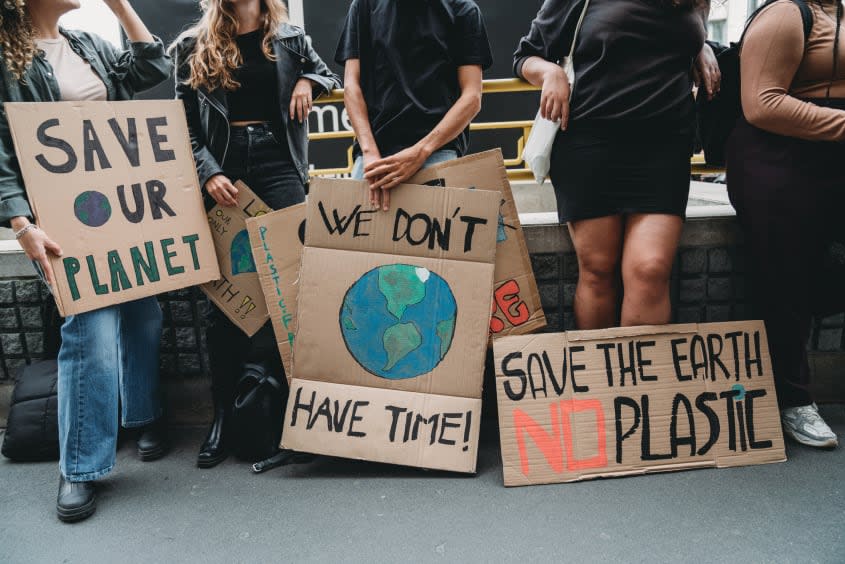Climate anxiety is plaguing the world's youth

What is climate anxiety, and might it actually be a good thing? Here's everything you need to know:
What is climate anxiety?
Climate anxiety, also known as eco-anxiety, is defined as "distress relating to the climate and ecological crises," according to a study released in 2021. While not a diagnosable disease, the phenomenon has reportedly been on the rise, especially among the world's youth.
A 2022 survey of 10,000 individuals ages 16 to 25 found that over 50 percent of respondents were "very or extremely worried" about climate change, and more than 45 percent said their feelings about climate change impacted their day-to-day lives. "Higher climate change anxiety is correlated with higher clinical symptoms of depression and anxiety," Sarah Schwartz, a psychology professor at Suffolk University, told CBS News.
Why is this happening?
Much of the anxiety stems from the uncertainty regarding the future. "We see that a lot of young people are saying, I think my life will be worse than my parents' lives," said Schwartz. "So, they know that the world is going to get to be a harder, darker, scarier place."
The media has also played into the issue. For instance, "due in particular to traditional and social media reframing," the "aspirational" goal of the Paris Climate Accords — to limit global warming to 1.5 degrees Celsius above pre-industrial levels — "is transmuting from a driver of change to an instigator of anxiety," Jeremy Fyke and Andrew Weaver write in the journal, Nature.
Climate stress has increased in areas where the effects of climate change are becoming more noticeable. Certain regions, especially coastal areas, are at higher risk of becoming flooded. Other regions are facing extreme natural disasters and droughts, and many young people don't think enough is being done to stop it.
"That's the core of the intergenerational climate problem: We've colonized the future, we treat it as a dumping ground for ecological degradation, and technological risks, as if there was nobody there," Roman Krznaric, a philosopher and author of The Good Ancestor, told journalist Jocelyn Timperley.
According to the American Psychological Association, additional mental health effects of climate change include gender-based violence, post-traumatic stress disorder, suicide, and aggression. "The people who are causing the climate crisis are not the ones who are going to be here to face the worst consequences," Maria Reyes, a climate activist with Fridays for Future Mapa (Most Affected People and Areas), told BBC's Future Planet in 2021. "We have to recognize that the voices of young people, especially those from the most affected areas by the climate crisis, are valuable."
Could climate anxiety be a good thing?
Some experts say climate anxiety can actually prove beneficial (and be mitigated) if it translates into action. "What we saw was that for young people who have high levels of climate anxiety, if they also have high levels of activism, then we didn't see any higher levels of depression symptoms," Schwartz said, speaking with CBS News.
Psychotherapist Caroline Hickman also said that "eco-anxiety is a healthy response to the situation humans are facing," since it suggests increased awareness of and willingness to solve the problem.
You may also like
5 hilarious cartoons about Tucker Carlson's bad week
Hugh Grant goes viral for 'dismissive' red carpet interview at the Oscars
San Francisco to introduce $5M-per-person reparations plan for Black people

